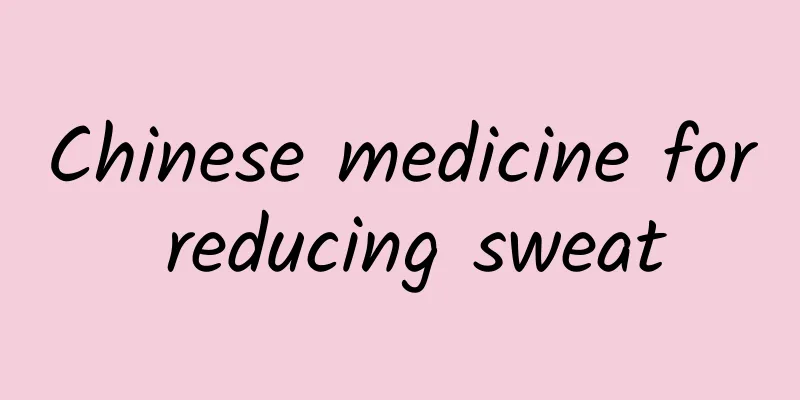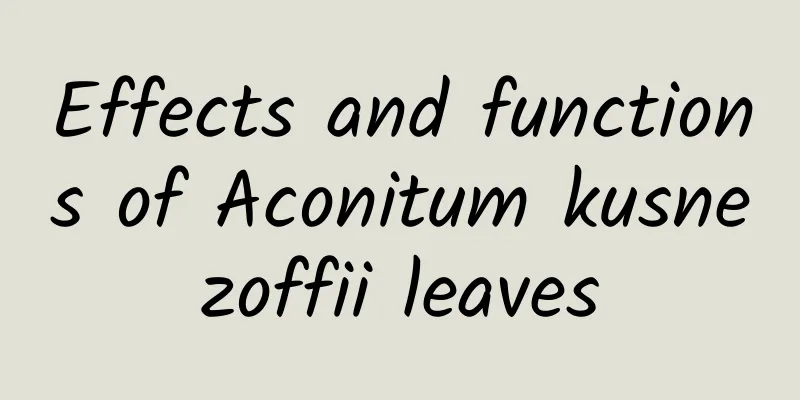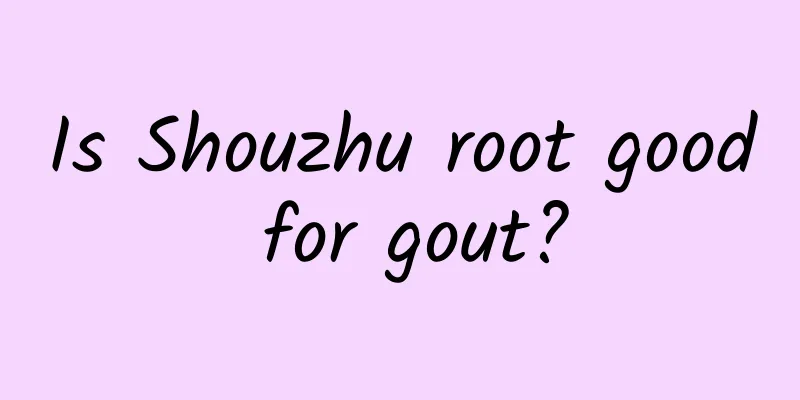Chinese medicine for reducing sweat

|
I wonder if you have ever experienced the phenomenon of spontaneous sweating in your life, especially for people with weak constitution or some middle-aged and elderly people. They often sweat profusely at night and find that their pajamas are all wet when they wake up. So at this time, the patients need to be given some drugs to astringe sweat. So what are the traditional Chinese medicines for astringing sweat? Let me give you a detailed introduction below Sweating astringency refers to the method of using Chinese medicine with astringent effects to treat excessive sweating. Most of them are used to stop sweating. There are two types of sweating: spontaneous sweating due to qi deficiency and night sweats due to yin deficiency. Spontaneous sweating due to qi deficiency needs to be treated with traditional Chinese medicine that replenishes qi and restrains sweat. When the heart qi is weak and unable to transport blood, the lungs will be affected, the main function of qi control will be impaired and shortness of breath will occur, therefore "wheezing is caused by insufficient heart qi". The three medicines are used together, one to nourish, one to clear, and one to astringe, they nourish the lungs, nourish the heart, and nourish yin, and together they have the effects of invigorating qi and nourishing yin, promoting fluid production and quenching thirst, astringing yin and stopping sweating, so that qi can be restored and fluid production can be produced, sweating can be stopped, yin can be preserved, and the pulse and qi can be replenished, then life can be restored. "Li Dongyuan added astragalus and licorice to this prescription, named "Shengmai Baoyuan Decoction", which has a better effect of replenishing qi. He also added angelica and white peony root, named "Renshen Yinzi", which is used to treat qi deficiency, asthma, cough, vomiting blood and epistaxis. Night sweats are caused by deficiency of both Qi and Yin in the heart, and are related to excessive thinking, old age, long-term illness, excessive fatigue or exposure to external pathogens. Deficiency of both qi and yin in the lungs can be seen in a variety of diseases, mostly due to long-term lung disease, long-term cough and asthma, and depletion of qi and yin in the lungs. It can also be seen in the course of febrile diseases such as exogenous warm heat or summer heat. The cause is that heat consumes body fluids, causing excessive sweating and even leading to "loss of qi along with body fluids." [1][2] Performance The clinical manifestations of Qi and Yin deficiency syndrome include shortness of breath, laziness to speak, fatigue, especially when moving, spontaneous sweating, night sweats, hot flashes, red cheeks, dry mouth and throat, red tongue with little coating, and a thin and weak pulse. If the deficiency of both Qi and Yin is caused by long-term cough that damages the lungs, clinical symptoms may include dry cough with little sputum and shortness of breath. People with deficiency of both Qi and Yin in the heart may, in addition to the general symptoms, also have palpitations, insomnia, chest tightness, forgetfulness, and irregular pulse. In addition, during the course of fever, due to excessive sweating, the qi is lost along with the body fluid, and symptoms of collapse such as profuse cold sweat, weak breathing, pale complexion, cold limbs, and weak pulse may also appear. [1] diagnosis Yin deficiency can lead to a loss of balance in the opposing and restrictive relationship between Yin and Yang, which can cause Yang hyperactivity and internal heat. When a person sleeps, the Wei Yang goes from the outside to the inside, the skin surface is not firm, the internal heat increases, the steam leaks out and sweat occurs; when a person wakes up, the Wei Yang goes from the inside to the surface, the internal heat is reduced and the skin surface becomes firm, so the sweating stops. Yin deficiency body, imbalance of yin and yang, disharmony of Ying and Wei. At night, the Wei Yang enters the body, and the Ying Yin loses the protection of the Wei Yang, so it escapes outward and causes night sweats. [3 |
<<: External application of Chinese medicine to soften lumbar protrusion
>>: How to take Chinese medicine amber powder
Recommend
Can Tianma cure tinnitus?
In fact, many people are now very concerned about...
When you go to Tibet, you must not miss Basu!
There are always some scenery Worth the climb Eve...
The efficacy and function of shark skin
In fact, the occurrence of many human diseases is...
Weather satellite: predicting wind, frost, rain and snow
Among all kinds of satellites, there are some tha...
The efficacy and function of leather bag incense
The nutritional value of the leather bag incense ...
The efficacy and function of Torreya grandis branches and leaves
Torreya grandis branches and leaves are a familia...
Can wolfberry be eaten frequently?
With the progress of society, more and more peopl...
The efficacy and function of the bellows tree
The bellows tree is a traditional Chinese medicin...
What disease can be treated by seeing blood blue
There are many Chinese medicinal herbs in traditi...
How long should Liuwei Dihuang Pills be taken?
When it comes to Liuwei Dihuang Pills, I believe ...
The efficacy and function of Lulang Chicken
Lulang chicken, a traditional Chinese medicine, i...
What is the function of Solanum nigrum?
In real life, Solanum nigrum is a very common her...
The main character of the starship's first flight was replaced. What is the strength of the new combination of Raptor configuration?
The starship's first flight changes the prota...
The efficacy and function of okra leaves
I wonder if you have ever heard of okra leaves. O...
Stacking satellites layer by layer? "One rocket launches a hundred satellites" is not a dream!
Since the birth of the first artificial satellite...









